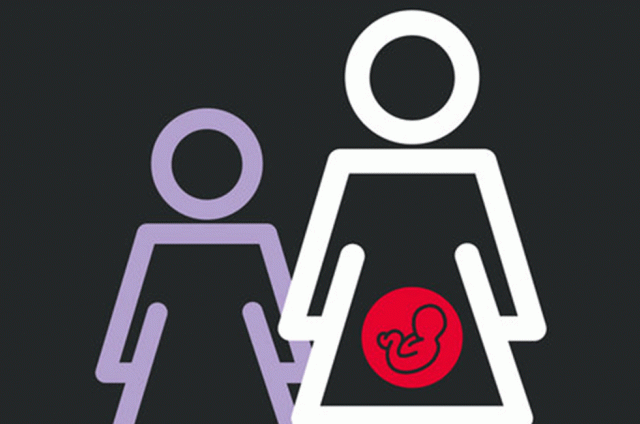How epilepsy affects women and girls
Some issues around epilepsy and its treatment are specific to women and girls and do not apply in the same way to men. These include links between epilepsy and hormones, puberty, contraception, pregnancy, osteoporosis, and the menopause.
Hormones
Epilepsy can be different for everyone, and changing hormone levels in the body may affect some women. For some women with epilepsy, there may be a close link between hormones and epileptic seizures. Hormone levels change throughout life and may affect when epilepsy starts, how often seizures happen, and if and when seizures stop.
Changes in hormone levels can make managing epilepsy different for women compared to men. It may also explain why epilepsy treatment for women may need to change over time.
Oestrogen and progesterone are hormones naturally produced in a woman’s body, which bring about sexual development, menstruation, and pregnancy. They can speed up or slow down brain activity and can affect when a woman has seizures.
Puberty
Puberty is when hormonal changes in the body cause sexual development to begin. It can also be a common time for epilepsy to start.
Some women or girls may be concerned about how hormones may affect their epilepsy, periods, or their menstrual cycle.
Most people are prescribed anti-seizure medication (ASM) to try and stop seizures from happening.
As with any medication, ASM can cause side effects in some people. Side effects may differ from one person to another. But some side effects can affect an unborn baby during pregnancy (see 'starting a family').
Catamenial epilepsy
Because of the changes in hormone levels that happen throughout the menstrual cycle, one in three women with epilepsy finds that their seizures are affected by their periods. Some women regularly have their seizures just before or during their period, or at ovulation (mid menstrual cycle). Women who have their seizures only at these specific times during their menstrual cycle (and at no other time), may have catamenial epilepsy.
Keeping a seizure diary and recording dates of your periods can help you see if there is a pattern.
Women with catamenial epilepsy may be prescribed a contraceptive injection, such as Depo Provera. This may reduce seizures for some women as it stops their regular cycle. An extra ASM, in addition to their regular ASMs, may be prescribed for the week before and during the first few days of their period. If you think you may have catamenial epilepsy, you can discuss suitable treatment options with your specialist.
Polycystic Ovary Syndrome
Polycystic Ovary Syndrome (PCOS) is a common hormonal condition where eggs from the ovary do not develop properly. Eggs are usually released each month during ovulation. For women with PCOS, eggs are not released in the usual way but stay in the ovary forming non-harmful cysts. PCOS may be more common in women with epilepsy.
It may also be more common in women who take certain ASMs such as sodium valproate, or who gain weight, which can be a side effect of some ASMs.
If you are concerned about PCOS, talking to your specialist might help, as changing your ASM can sometimes stop or reverse these effects. As for everyone with epilepsy, it is recommended that you talk to your specialist before making changes to your ASM.
Contraception
Some methods of contraception may be less effective in preventing pregnancy for women taking certain ASMs. This is because some ASMs affect how well different methods of contraception work. *ASMs are either enzyme-inducing or non-enzyme-inducing, although topiramate and perampanel can be either, depending on the dose.
Enzyme-inducing ASMs
Enzyme-inducing ASMs may affect methods of contraception that contain hormones, such as the Pill, or contraceptive implants, because they increase the amount of enzymes that break down hormones in the body. This means the hormones in contraceptives are broken down more quickly than usual, so they stay in the body for less time and are less effective in preventing pregnancy. If you take an enzyme-inducing ASM, you may be advised by your doctor to use a method of contraception that is not affected by your ASM, such as a barrier method, or to use more than one method to help prevent pregnancy. The following are the generic names of enzyme-inducing ASMS:
carbamazepine phenobarbital
cenobamate phenytoin
eslicarbazepine acetate primidone
fenfluramine rufinamide
oxcarbazepine *topiramate
*perampanel
Non-enzyme-inducing ASMs
Non-enzyme-inducing ASMs are unlikely to affect any form of contraception. However, see below for details on lamotrigine. The following are the generic names of non-enzyme-inducing ASMs:
acetazolamide *perampanel
brivaracetam piracetam
clobazam pregabalin
clonazapam sodium valproate
ethosuximide stiripentol
everolimus tiagabine
gabapentin *topiramate
lacosamide vigabatrin
lamotrigine zonisamide
levetiracetam
Lamotrigine – a special case
There is evidence that the Pill lowers lamotrigine levels in the blood, and this could lead to seizures happening.
Research suggests that lamotrigine can make some hormonal contraceptives, such as the Pill, less effective. So using an additional contraceptive method, such as condoms, is recommended.
If you take lamotrigine, it is important to talk to your doctor before starting any contraception that contains the hormones progestogen and oestrogen.
What is best for me?
You may want to talk to your neurologist, epilepsy specialist nurse (ESN), or a family planning advisor about the combination of ASM and contraception that is best for you.
Starting a family
Having epilepsy does not necessarily mean that starting a family will be any more difficult for you than for anyone else. However, it may mean that you have a few more things to consider before, during, and after your pregnancy.
Your doctor might suggest a change to the type of ASMs that you take, as some are more risky to unborn babies than others. Women with epilepsy who take some ASMs during pregnancy have a higher risk of having a baby with a birth abnormality than women with epilepsy who don’t take ASM.
If you are thinking of starting a family, it is important not to stop taking your ASM as this could lead to a seizure. It is essential to talk to your neurologist about planning your epilepsy treatment for your pregnancy and for when your baby arrives. It is important that you do this before you become pregnant.
The menopause
The menopause is when a woman’s periods stop and they can no longer become pregnant. During the menopause, a woman’s body stops making natural hormones and this can cause symptoms such as hot flushes and mood swings.
Hormone replacement therapy (HRT) is sometimes used to treat these symptoms. HRT contains either oestrogen or a combination of oestrogen and progestogen. Although oestrogen is known to have a proconvulsant (seizure causing) effect for some women, the amount of oestrogen prescribed in HRT is usually not enough to cause seizures to happen. However, if you take HRT and you do have more seizures than usual, this could be related to the oestrogen in HRT. If this happens it might be helpful to discuss the HRT with your neurologist to consider any possible alternatives or different combinations of oestrogen and progestogen.
Having information and regular medical reviews with your neurologist or GP can be important during the menopause. This is an opportunity to discuss any concerns you may have.
The British Menopause Society has more information.
Osteoporosis
The mineral calcium is important for our bones. Vitamin D helps calcium to get into the bones, and the calcium helps to make the bones strong. When calcium is lost, bones become thinner, more brittle, and break more easily. This is called osteoporosis. Anyone can develop osteoporosis, but it is more common in women, especially after the menopause when levels of oestrogen start to decrease.
Having epilepsy and taking ASM may contribute to the risks of developing osteoporosis, but how much they contribute to this risk is not clear, and will vary from person to person.
Taking high doses of several different ASMs for many years may contribute to the risk of developing osteoporosis. Studies have shown that some enzyme-inducing ASMs may increase levels of chemicals in the liver that destroy vitamin D, reducing the amount of vitamin D in the body.
The NICE (National Institute for Health and Care Excellence) guideline (2022) called ‘Epilepsies in children, young people and adults’, recommends that, for some people, their neurologist may suggest taking vitamin D and calcium supplements.
Calcium and vitamin D supplements can help replace the natural loss of calcium. If you have concerns about osteoporosis, talking to your neurologist about the
possibility of vitamin D level checks or having a bone density scan might help.
If osteoporosis happens when a woman goes through the menopause, HRT containing oestrogen, or a combination of oestrogen and progestogen, may be prescribed. HRT is generally used to relieve the symptoms of the menopause, but it might also help to protect against osteoporosis at this time.
Call the Royal Osteoporosis Society helpline on 0808 800 0035
Epilepsy Society is grateful to Dr F J Rugg-Gunn, Consultant Neurologist & Honorary Associate Professor, Clinical Lead, Chalfont Centre for Epilepsy, who reviewed this information.
Information updated: May 2025. Review date: May 2027.
Download this information
For printed copies, please call our Helpline on 0300 102 0024.


